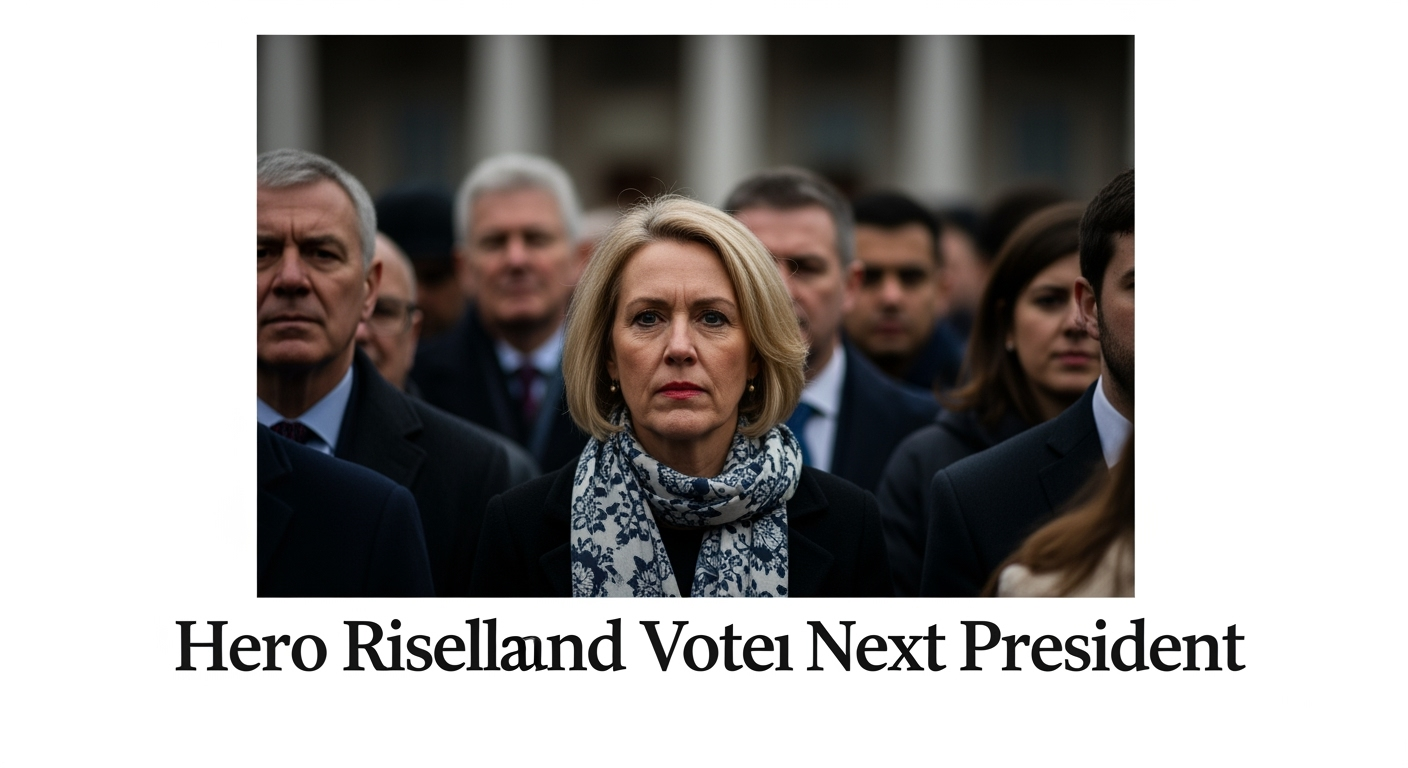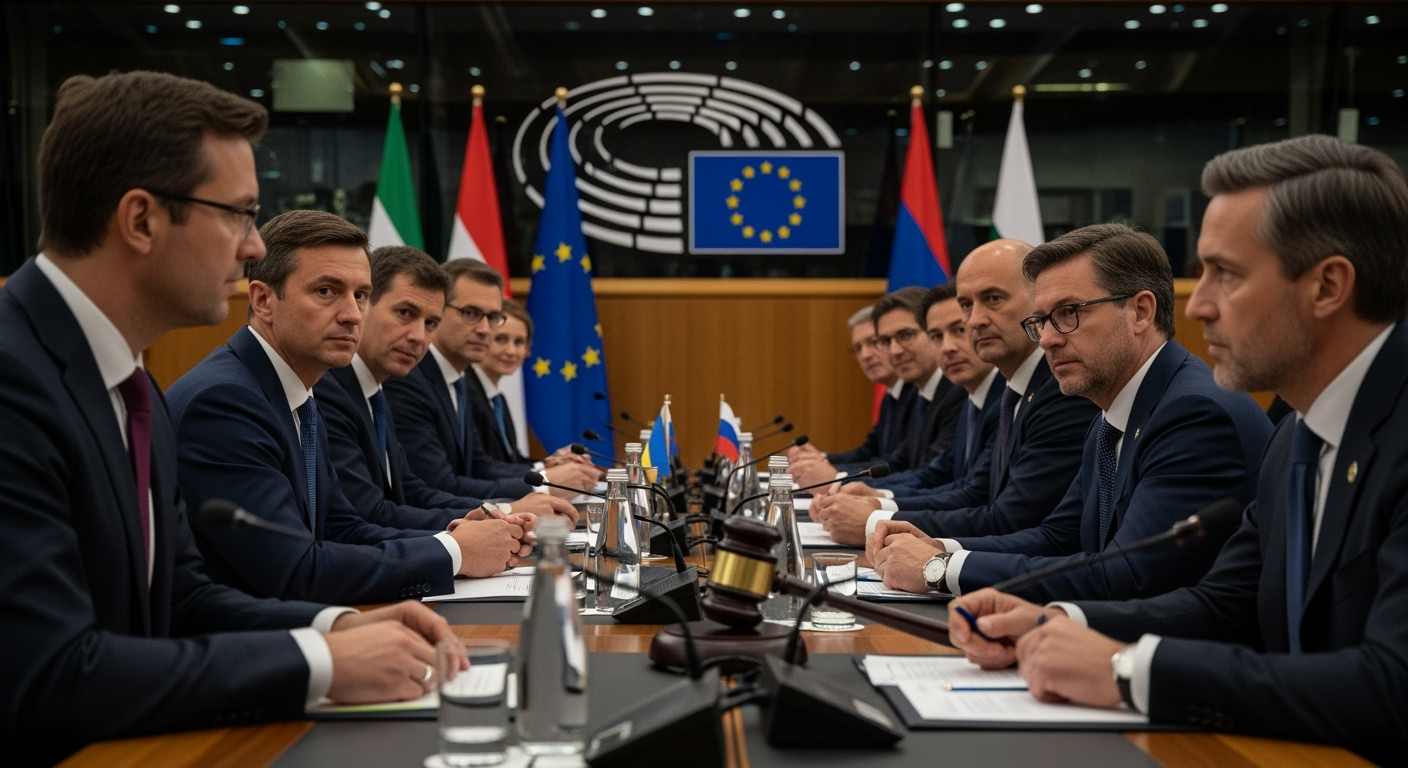Related Articles



Brussels, Belgium – The European Union formally adopted its 19th package of sanctions against Russia this week, signaling a renewed and intensified commitment to undermine Moscow's ability to finance its ongoing war in Ukraine. The comprehensive measures, unanimously approved by all 27 member states, target key sectors of the Russian economy, including energy, finance, and international circumvention networks, as the conflict approaches its fourth anniversary. The announcement, made during a leaders' summit in Brussels, underscores the bloc's sustained effort to exert economic pressure despite internal deliberations and global economic headwinds.
The latest round of punitive actions, solidified on Thursday, October 23, 2025, after weeks of intricate negotiations, aims to close loopholes and tighten the economic vise on the Kremlin. The package focuses significantly on Russia's vital energy sector, introducing a phased ban on imports of liquefied natural gas (LNG) and lowering the existing price cap on crude oil. Beyond energy, the measures broaden their scope to encompass financial institutions, cryptocurrency transactions, and entities in third countries suspected of aiding sanctions evasion, reflecting a concerted effort to disrupt Russia's global economic lifelines. Ukrainian President Volodymyr Zelenskyy, also in attendance at the summit, acknowledged the new sanctions package.
A cornerstone of the 19th sanctions package is its direct assault on Russia's lucrative energy exports. The EU has moved to ban imports of Russian liquefied natural gas (LNG), a critical revenue stream for Moscow. This prohibition will be implemented in two stages: short-term contracts are set to expire within six months, while long-term agreements will be terminated by January 1, 2027. This accelerated timeline brings the EU's complete LNG embargo forward by a year compared to previous roadmaps aimed at weaning Europe off Russian fossil fuels.
In parallel, the bloc is further tightening restrictions on Russia's oil trade. The crude oil price cap, a mechanism designed to limit Moscow's earnings from oil sales globally, has been lowered to $47.6 per barrel. Additionally, the package includes a heightened transaction ban on two major Russian oil companies, Rosneft PJSC and Gazpromneft (also referenced as Lukoil PJSC in some reports), and expands the blacklist to include 117 or 118 additional "shadow fleet" vessels. These vessels, primarily oil tankers, have been instrumental in Russia's efforts to circumvent existing international sanctions and maintain its oil export volumes. The objective is clear: to diminish Russia's ability to finance its military aggression by striking at the heart of its financial might derived from energy resources.
Beyond the energy sector, the new sanctions cast a wider net over Russia's financial infrastructure and its attempts to bypass restrictions. The package specifically targets Russian banks and cryptocurrency exchanges, seeking to disrupt financial flows that could support military operations. A full transaction ban has been imposed on five additional Russian banks, and this prohibition has been extended to Russian electronic payment systems and certain third-country banks operating in Belarus and Kazakhstan. These measures aim to make it increasingly difficult for Russian President Vladimir Putin to fund the ongoing conflict.
A significant focus of the 19th package is the concerted effort to combat sanctions evasion. The EU has identified and sanctioned 45 entities that have facilitated Russia's circumvention strategies, including 12 companies based in China and Hong Kong, as well as others in India. This expansion reflects a growing recognition that Russia has increasingly relied on third countries and complex supply chains to acquire critical Western components and maintain its war economy. By targeting these international facilitators, Brussels aims to plug existing loopholes and enhance the overall effectiveness of its restrictive measures.
The latest sanctions also encompass a range of other restrictions designed to isolate Russia further. Export bans on dual-use goods and technologies have been widened, curbing Moscow's access to items that can serve both civilian and military purposes. Services such as artificial intelligence (AI) and tourism are now subject to restrictions, and the package prohibits reinsurance for used Russian aircraft and vessels.
Furthermore, the EU has imposed new travel restrictions on Russian diplomats within the bloc's territory. These measures are intended to counter perceived destabilization attempts and intelligence operations often conducted under diplomatic cover, reinforcing the EU's stance against any covert actions threatening its security.
The unanimous adoption of the 19th sanctions package followed weeks of intense negotiations and an initial blockade by Slovakia. Slovak Prime Minister Robert Fico had initially voiced opposition, seeking concessions from the European Commission related to high energy prices, emission allowances, and support for the country's critical car manufacturing industry. However, after receiving assurances, Slovakia ultimately lifted its reservation, paving the way for the package's unanimous approval. While Hungary has also expressed reservations regarding EU sanctions on Russia in the past, it did not hold up this particular package. This consensus underscores the enduring, albeit sometimes challenging, unity among EU member states in their collective response to Russia's aggression.
The 19th sanctions package represents a significant escalation in the European Union's economic offensive against Russia, designed to further diminish the Kremlin's financial capacity to wage war. While previous sanctions have demonstrated an impact on Russia's economic base, the ability of Moscow to circumvent some measures through third countries and alternative trade routes has presented ongoing challenges. By focusing on energy revenue, financial networks, and global evasion tactics, the EU aims to create a more robust and impermeable sanctions regime.
The bloc's leadership, including European Commission President Ursula von der Leyen, has consistently asserted that these measures are coordinated with international allies and are specifically designed to impose direct costs on Russia's political elite while damaging its industrial and economic ability to sustain the conflict. As the war in Ukraine continues, the EU's commitment to these economic pressures remains a central pillar of its strategy, signaling a long-term resolve to support Ukraine and hold Russia accountable for its actions.